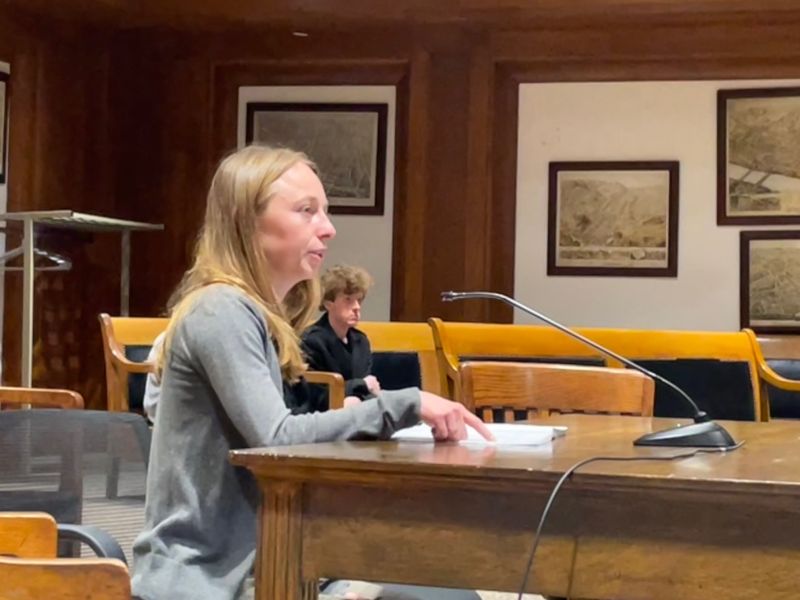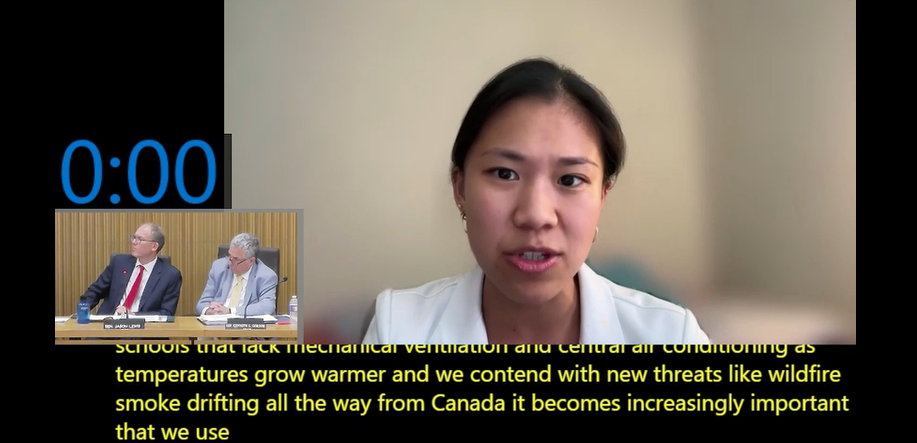Researchers Partner with Nonprofits to Track Health Effects of Federal Environmental Policies.

Researchers Partner with Nonprofits to Track Health Effects of Federal and State Environmental Policies
Jonathan Buonocore and Jonathan Levy in the Department of Environmental Health have received a new grant to support their ongoing efforts to advance public discourse around health-protective environmental policies.
Since the start of 2025, the Trump administration has issued nearly 200 executive orders, including directives that have dramatically altered the trajectory of the country’s environmental policy, challenging climate-related initiatives and ending environmental justice programs. The Environmental Protection Agency (EPA) has followed suit, attempting to roll back an array of environmental protections that the administration has deemed a burden to domestic oil, gas, and coal production. The agency has characterized these efforts as the “biggest deregulatory action in U.S. history.”
Concerned by these significant changes, faculty in the Department of Environmental Health (EH) at the School of Public Health have launched an initiative to ensure public health considerations remain central to environmental policymaking. Jonathan Levy, chair and professor of environmental health, and Jonathan Buonocore, assistant professor of environmental health, have partnered with colleagues at several national environmental nonprofit organizations to track and assess the health effects of federal environmental policies.
While announcements of these actions suggest that the changes—such as the repeal of emissions standards for coal-fired power plants—unleash growth in the energy sector, lower cost of living, and will revitalize the country’s auto industry, the administration was remiss to address potential health consequences and associated healthcare costs of the policies, says Buonocore.
Through strategic communications and timely analysis, Levy and Buonocore aim to apply their expertise to inform the public discourse around health-protective policymaking. For example, the pair recently joined a group of academic experts on exposure science, environmental epidemiology, and the health effects of air pollution to submit a public comment on the EPA’s proposal to repeal greenhouse gas (GHG) emissions standards for fossil-fuel fired power plants. Their comment detailed how multiple decades of research show GHGs cause significant harm to human health and by the EPA’s own analysis the proposed change would result in $8.0 billion per year in added health costs due to particulate matter and ozone exposures, while only saving $1.2 billion per year in regulatory compliance costs.
The researchers intend to submit additional comments and develop other public-facing materials as EPA proposals become available. Their ongoing efforts will be supported in part by a new grant from Mosaic, a national collaborative funding project.
“Often, academic researchers have information and insights relevant to pending policy decisions, but we lack the understanding of the policy landscape or how to most effectively and strategically communicate,” says Levy. “The strengthened coordination offered by the Mosaic grant will help us break down silos between academic researchers and environmental NGOs, supporting rapid-response analyses and strategic communications related to the public health implications of environmental policy changes and providing a platform for future work to evaluate and advance health-protective environmental policy measures at the federal, state, and local levels.”
While Levy and Buonocore have their focus trained on developments at the EPA for the time being, other members of the EH department have lent their expertise to inform policymaking in the state legislature. Kathryn Rodgers, an EH PhD student in BU’s Graduate Program in Urban Biogeoscience and Environmental Health, leads a working group formed during summer 2024 to track policy developments related to research conducted within the department and to coordinate opportunities for individuals to share their expertise with policymakers.
Rodgers reports that several of her fellow doctoral students have elected to attend hearings to provide written and oral testimony on bills being considered during the current state legislative session, for example. The students participate as individual citizens and do not speak in support or opposition of specific bills, she says, but rather aim to provide educational information about their research that they view as pertinent to the public discourse.

In July, Beverly Ge, an EH PhD and BU URBAN student who collaborated with Patricia Fabian, associate professor of environmental health and associate director of BU’s Institute for Global Sustainability, to study indoor air quality in Boston Public Schools, testified to the benefits of classroom air monitoring before the Joint Committee on Education. Earlier in the summer, Samantha Hall, an EH PhD and BU URBAN student working with Jessica Leibler, associate professor of environmental health, to study chronic kidney disease among agricultural workers, testified before the Joint Committee on Labor and Workforce Development on Bill S.1355 “An Act to establish extreme temperature worker protections.” Hall spoke to the effects of extreme heat on the renal system and the unequal distribution of immigrant and Latino workers in occupations that involve extreme heat exposure.

“Once proposed bills started coming out of the current legislative session, [we noticed] a lot are relevant to PFAS, indoor air quality in schools, outdoor air quality, worker heat protections, environmental justice—things that are active areas of research in the [EH] department, and through this group, we saw an opportunity to connect with local policymakers and legislators,” says Rodgers. “They were eager to learn more about local scientific research, so it is important for researchers to be able to make those connections.”
